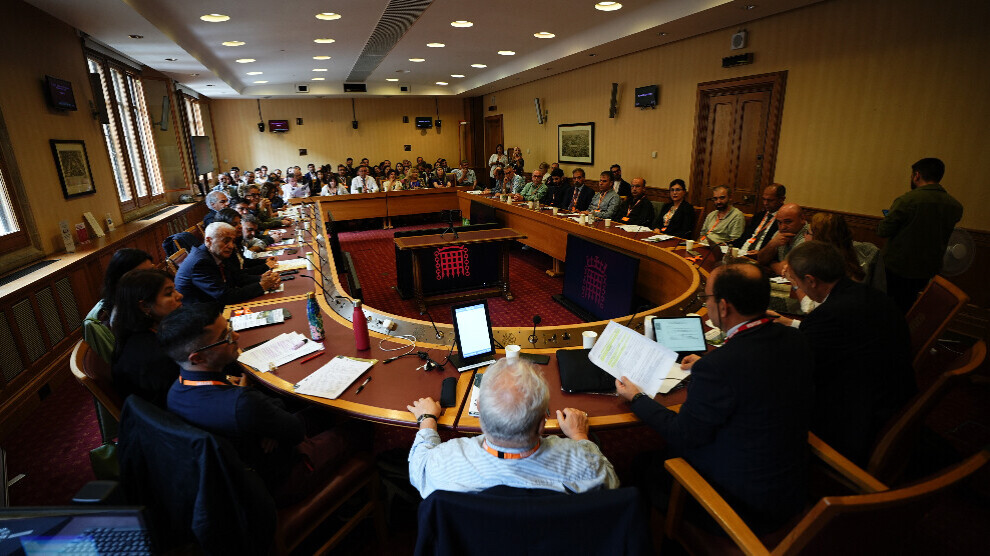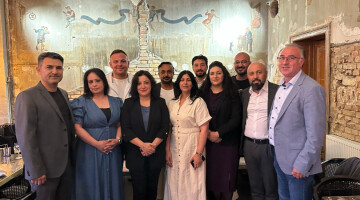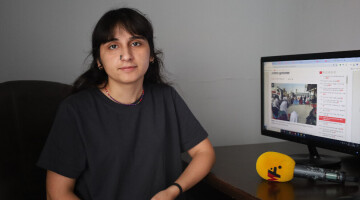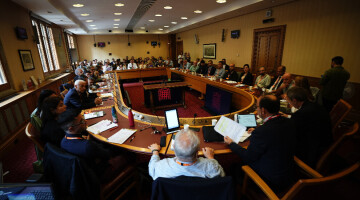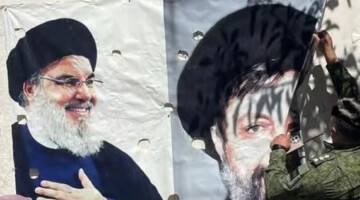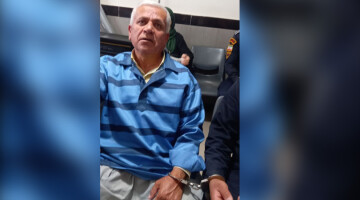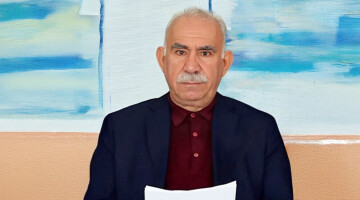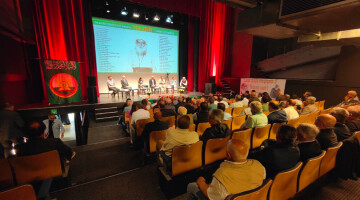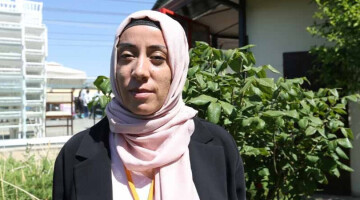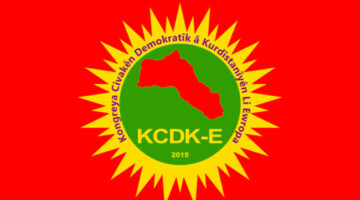On 26 June 2025, the Centre for Kurdish Progress hosted an international conference at the UK Parliament to discuss peace and stability in Turkey, the Kurdish regions, and the wider Middle East. Bringing together parliamentarians, academics, journalists, trade unionists, and civil society representatives, the "Turkey, the Kurds and the Middle East Today: The Road to Peace & Stability International Conference"was chaired and supported by leading figures from politics and activism.
Session One: The Road to Peace: Turkey, the Kurds and Regional Stability in the Middle East
Chaired by Osman Baydemir, former MP of the Peoples' Democratic Party (HDP), this session featured prominent voices from Kurdish politics, journalism, and academia. Speakers included Tuncer Bakırhan (Co-Chair, DEM Party), Ezgi Başaran (Journalist and Academic, University of Oxford), Ferhad Hemmi (Journalist and Researcher, Kobanî, Rojava), and Prof. Abbas Vali (Middle East Politics Expert).
The discussion focused on democratic solutions to the Kurdish question in Turkey, the impact of regional conflicts such as Israeli policies in Gaza on Turkey’s foreign policy, and the vital role of Abdullah Öcalan’s philosophy in shaping Rojava’s self-administration. Prof. Abbas Vali emphasised that peace cannot be achieved without democracy, underlining the necessity of developing democratic institutions and processes.
Session Two: Peace and Reconciliation Processes Around the World
Chaired by Clare Baker of Unite the Union, this panel drew on international experiences of conflict resolution and reconciliation. Lord Maurice Glasman, Labour life peer and founder of the Blue Labour movement, reflected on the importance of community-rooted politics and stressed the Labour Party’s responsibility to support lasting peace efforts between Turkey and the Kurds.
Mariela Kohon, Assistant Director at the Trades Union Congress (TUC) and adviser to the Colombian peace process, shared insights from Colombia’s journey towards reconciliation, while Seán Byers from Trademark Belfast discussed the crucial role of trade unions in Northern Ireland’s peace process.
Session Three: Promoting Peace: Opportunities for UK Engagement
Chaired by Simon Dubbins, Chair of Freedom for Öcalan UK Trade Union Campaign, the final session explored the UK’s potential contributions to advancing peace. Oxford barrister and PhD candidate Stephen Knight analysed the legal challenges faced by the Kurdish freedom movement, highlighting how criminalisation policies complicate peace efforts.
Meral Çiçek of the Kurdish Women’s Movement emphasised that sustainable peace and democracy require the active participation and leadership of women, drawing attention to the intersection of gender and liberation.
The conference concluded with a shared commitment to support democratic peace processes and justice for all parties involved. The Centre for Kurdish Progress remains dedicated to fostering dialogue and international solidarity in pursuit of lasting peace in the region.
The final declaration of the conference includes the following:
"This conference reaffirms our commitment to peace, justice, and the protection of fundamental rights for the Kurdish people, the peoples of Turkey and the wider Middle East.
This conference therefore asserts:
Support for the 27 February Call for Peace made by Mr Abdullah Öcalan
We strongly endorse the 27th February statement by Abdullah Öcalan calling for the resumption of peace efforts in Turkey. This call represents a vital opportunity to rebuild dialogue and trust.
Support and recognition of the of Constructive Steps from Mr Abdullah Öcalan and the PKK
We support the constructive steps taken by Kurdish representatives to further peace. These efforts demonstrate a genuine commitment to nonviolence, dialogue, and long-term political solutions.
Urgent Need for Action from the Turkish State
We urge the Turkish government to take immediate and concrete steps toward a renewed peace process. These must include, as a priority, the establishment of a cross-party parliamentary commission to oversee the process. Broad political inclusion, transparency, and accountability are essential. The reported potential for this commission to be formed by mid-July adds urgency to this call.
The Long-Term Nature of Peace-building
We recognise that sustainable peace is a long-term process. However, essential steps can and must be taken now to lay a foundation for future progress.
Justice for Political Prisoners and Fulfilment of International Legal Obligations
We call for the immediate implementation of ECHR rulings concerning political prisoners, including Abdullah Öcalan, Selahattin Demirtaş, Figen Yüksekdağ, and Osman Kavala, among others. Political imprisonment undermines both legal standards and the possibility of peace. Turkey must honour its international legal commitments.
The Role of the United Kingdom
We call on the UK government to play a positive diplomatic role in supporting peace efforts in Turkey and in the protection of Kurdish rights in Syria.
We urge UK support for the democratic aspirations of the Democratic Autonomous Administration of North and East Syria (DAANES) and its emphasis on a pluralistic Syrian future.
We call on the UK to end the criminalisation of the Kurdish community and activists within its own borders.
We call for the ban on the PKK to be reconsidered and the possibility of political dialogue to be recognized, as was the case in the peace processes in Northern Ireland, Colombia, and South Africa.
We believe that British civil society, trade unions, community organizations, think tanks, academics, and institutions should actively engage with the government and political actors to mobilize diplomatic support for a sustainable peace process in Turkey.
Isolation of Öcalan
We reiterate our fundamental demand that the isolation policy against Abdullah Öcalan be ended. We defend Abdullah Öcalan's right to life and freedom of work in accordance with the principles established by the European Court of Human Rights and the concept of the “right to hope.” Abdullah Öcalan's role in the peace talks has been critical in the past, and progress is not possible without him being granted access to legal advisors and communication channels.
Military Violence in Northern Iraq
We call for an immediate end to military operations, particularly air strikes in the Kurdistan Region of Iraq. While a temporary ceasefire and negotiations are ongoing in Rojava, we recognize that the violence in northern Iraq poses a major obstacle to peace.
We emphasize that dialogue, inclusiveness, and respect for human rights are the only valid means of achieving a just and lasting peace for Turkey and the region.”

